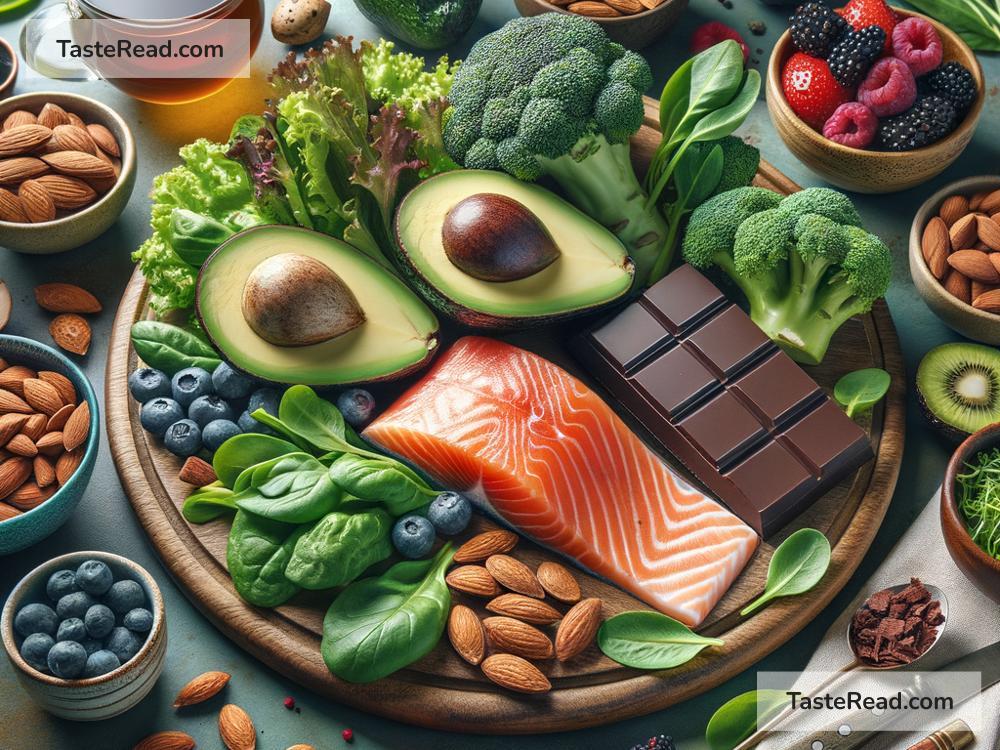Foods That Enhance Stress Resilience: Eat Your Way to a Calmer Mind
Life can be stressful, whether it’s a busy work schedule, family challenges, or everyday pressures. While it’s impossible to eliminate all stress, one key to coping better lies in what you eat. Yes, your diet can truly make a difference! Certain foods have been proven to boost your body’s ability to manage stress, calm your mind, improve your mood, and even protect your health during tough times. Today, we’ll explore these foods and how they can help you build resilience to stress.
Why Does Food Matter for Stress?
Stress takes a toll on your body. It can make your hormones go haywire, increase inflammation, and drain your energy. Over time, chronic stress weakens the immune system and even increases the risk of mental health problems like anxiety and depression. However, eating nutrient-rich foods can help your body combat stress and build resilience. Nutrients like magnesium, vitamins, antioxidants, and omega-3 fatty acids play a vital role in calming your nervous system, regulating mood, and reducing the harmful effects of stress.
Foods That Enhance Stress Resilience
Here are some of the best foods to help you feel calmer and more equipped to handle stress:
1. Dark Leafy Greens
Spinach, kale, and Swiss chard are packed with magnesium, a mineral that helps relax the body and reduce anxiety. When you’re stressed, your body often loses magnesium, so it’s important to replenish it with these greens. Bonus: They’re also rich in antioxidants that fight inflammation caused by stress.
2. Avocados
Avocados are loaded with healthy fats and vitamin B. These nutrients help support brain function and regulate mood-related neurotransmitters like serotonin and dopamine. Plus, their creamy texture can feel comforting—perfect for a calm snack or a mood-boosting breakfast.
3. Fatty Fish
Salmon, mackerel, and sardines are rich in omega-3 fatty acids, which help reduce stress hormones like cortisol. Omega-3s also promote brain health, improve memory, and may lift your mood. Eating fatty fish regularly can be great for stress-resilience and overall health.
4. Nuts and Seeds
Almonds, walnuts, sunflower seeds, and chia seeds are tiny stress-fighters. They’re packed with magnesium, zinc, and healthy fats. Zinc, in particular, is great for fighting stress and boosting immune function. Grab a handful of mixed nuts for a quick and calming snack.
5. Whole Grains
Whole grains like brown rice, oats, and quinoa contain complex carbohydrates that help stabilize blood sugar. When blood sugar levels dip, you can feel irritable and stressed, so maintaining steady energy is key. They also help your brain produce serotonin, a feel-good hormone.
6. Berries
Strawberries, blueberries, and raspberries are rich in antioxidants like vitamin C. These antioxidants help protect your cells from damage caused by stress. They can also improve your immune system, which often suffers during periods of high stress.
7. Greek Yogurt
Greek yogurt is an excellent source of probiotics—healthy bacteria that live in your gut. Surprisingly, gut health affects mental health! A healthy gut can enhance your mood, reduce anxiety, and lower stress levels. Try pairing Greek yogurt with some fresh berries for double stress-relief power.
8. Tea
Herbal teas like chamomile, peppermint, and green tea can have calming effects on your mind and body. Green tea, for instance, contains an amino acid called L-theanine, which promotes relaxation without causing drowsiness. Sipping a warm cup of tea is also a soothing ritual in itself.
9. Dark Chocolate
Good news for chocolate lovers! Dark chocolate (70% cocoa or higher) contains magnesium and antioxidants that help reduce stress and improve mood. Eating a small piece can make you feel calm and happy—but moderation is key!
10. Bananas
Bananas are high in potassium and vitamin B6, which contribute to calming your nervous system. They’re also a quick and easy snack that delivers long-lasting energy—perfect when you’re feeling drained by stress.
11. Turmeric
Turmeric contains curcumin, a powerful anti-inflammatory compound that also supports brain health and reduces symptoms of anxiety and depression. Add turmeric to soups, smoothies, or teas to get its benefits.
Small Changes Make a Big Difference
Enhancing your stress resilience doesn’t mean you need to overhaul your entire diet overnight. Small changes, like swapping chips for nuts or choosing whole-grain bread, can gradually help build your body’s defense against stress. Keep these tips in mind:
- Eat Balanced Meals: A mix of healthy fats, protein, and carbs keeps blood sugar stable and reduces irritability.
- Stay Hydrated: Drink plenty of water to maintain energy and brain function.
- Limit Junk and Sugary Foods: These may provide a quick mood boost but can leave you feeling sluggish and stressed later.
- Practice Mindful Eating: Slow down and enjoy your meals—it’s a simple way to relax and reset your mind.
Conclusion
Life’s challenges are inevitable, but you can train your body to handle stress better, starting with your plate. Foods like leafy greens, fatty fish, avocados, and berries are not just delicious—they’re natural mood boosters. Incorporating them into your daily routine can help you feel calmer, more focused, and more prepared to bounce back from stress. Remember, building stress resilience is a journey, and every small snack or healthy meal gets you closer to feeling your best. So next time you’re feeling overwhelmed, reach for some of these stress-fighting foods—and give your body the fuel it needs to thrive!


